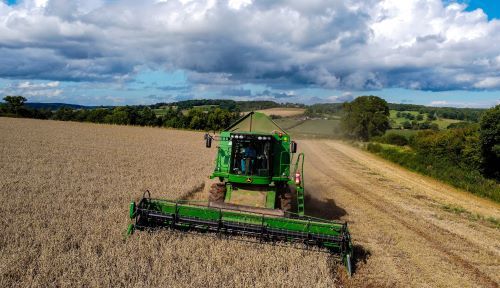
11 August 2023
Unusual wet weather is causing challenges for this year's harvest. Farmers enrolled in the nature-friendly Mid Tier scheme face difficulties as continuous rain since July hampers hay production. Additionally, waterlogged soil is impacting grain crops, with the potential for reduced quality due to sprouting and mold development if harvesting is delayed.
The England Ecosystem Project has launched, supported by Defra and Natural England. It is the largest investigation of its kind and will assess the impact of nature-friendly farming practices at over 6,000 locations. 16 organizations including the Wildlife Trust and ADAS, aim to evaluate farmland habitats and soil conditions across various regions and farming systems.
Liverpool has unveiled Southern Grasslands, an urban green space created using recycled soil, as the city's largest transformed area in the 21st century. Mayor Steve Rotheram inaugurated the site, which was created using over 400,000 cubic meters of excavated soil and waste from the former Festival Gardens waste deposit zone.
President Joe Biden's Agriculture Department has gained support from the farming industry for a $3 billion initiative aimed at combating climate change. The program incentivizes farmers to test green practices by offering payments, rather than penalizing them for excessive carbon emissions.
According to a study, soil is the most species-rich habitat on Earth, hosting over 50% of all species. Soil is home to 90% of fungi, 85% of plants, over 50% of bacteria, but only 3% of mammals. The study emphasizes the importance of soil life in maintaining the planet's balance and its impact on climate change, food security, and human health.
A recent study examines how regenerative agriculture involves farmers in addressing environmental crises. It warns against solely focusing on soil, which could distance diverse landscape relations and lead to commodification through carbon markets. Effective ecological transformation requires understanding more-than-human relationships.
New research highlights that climate strategies rely on soils and forests to remove carbon dioxide emissions. Long-term Low Emission Development Strategies submitted to the UN Framework Convention on Climate Change, support enhancing forest and soil carbon sinks, but only 12 strategies measure their impact. The study recommends strengthening UNFCCC reporting requirements for long-term national climate strategies.
With summer well and truly upon us, Garden Organic have written in Wicked Leeks about the lessons to be learned from managing an allotment. They include breaking the plot into sections for manageable progress, focusing on soil health through composting and mulching rather than laborious digging, and choosing crops wisely to align with available time and preferences.